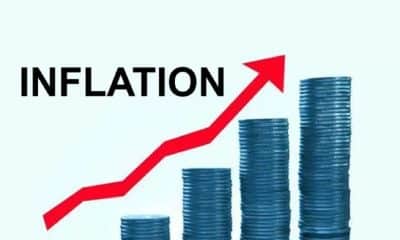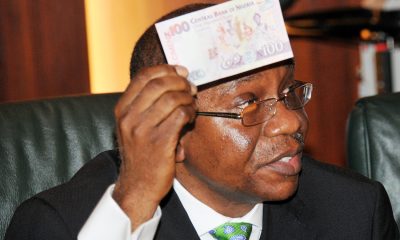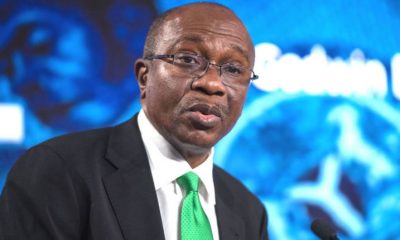Business
Nigeria’s Foreign Debt Service Costs Surge To $1.12 Billion Q1 2024

According to data released by the Central Bank of Nigeria (CBN), Nigeria spent a substantial $1.12 billion on servicing its foreign debts in the first quarter of 2024. This marks a significant increase of 39.7% compared to the $801.36 million spent during the same period in 2023.
The data indicates an alarming trend in debt service payments, which have been escalating over the past few years. In January 2024 alone, Nigeria disbursed $560.52 million for debt servicing, nearly five times that of January 2023’s $112.35 million.
Although there was a slight moderation in February and March, with payments amounting to $283.22 million and $276.17 million, respectively, the financial burden remained significant.
The increasing debt service payments have had a considerable impact on Nigeria’s dollar outflows. Nairametrics reported that approximately 70% of the nation’s official dollar outflows in the first quarter were dedicated to debt servicing, up from 49% in the first quarter of 2023. This surge in debt servicing has consumed a large chunk of Nigeria’s financial resources, raising concerns over the sustainability of such expenses.
Amidst these fiscal challenges, Nigeria’s foreign exchange reserves have experienced a significant downturn, attributed primarily to these hefty debt repayments and other standard financial obligations.
The Central Bank Governor, Yemi Cardoso, highlighted that the decline in reserves was not due to efforts to defend the naira but rather to the financial strain of fulfilling these international commitments.
The World Bank has expressed deep concerns regarding the escalating debt service costs that are straining developing countries worldwide. Indermit Gill, the World Bank’s Chief Economist and Senior Vice President warned of the potential for a widespread financial crisis if coordinated actions are not taken.
The convergence of record-high debt levels and soaring interest rates places many developing nations, including Nigeria, on a precarious path that could lead to severe economic distress and force difficult decisions about resource allocation.
In 2023, Nigeria’s external debt service reached $3.5 billion, a 55% increase from the $2.6 billion recorded in 2022. These figures underscore the urgent need for strategic fiscal management and comprehensive debt relief measures to mitigate the country’s financial challenges.












